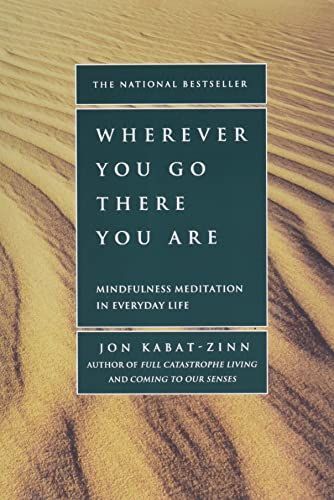
Wherever You Go, There You Are Mindfulness meditation for everyday life
The international bestselling mindfulness guide. Mindfulness is considered the heart of Buddhist meditation. But its essence is universal and of deep practical benefit to everyone. In Wherever You Go, There You Are, Jon Kabat-Zinn maps out a simple path for cultivating mindfulness in our lives, and awakening us to the unique beauty and possibilities of each present moment. Since its first publication in 1994 (as Mindfulness Meditation for Beginners), this book has changed lives across the globe and is a perennial international bestseller.
Reviews
Raf@raffaele
Sarah Escorsa@shrimpy
Archita Birla@architaxb
Beatričė @beatarok
Chris Jennings@ckj
kayla @kayellng
Sam@givemenothing
Nenad Nikolic@nnikolic72
Tennyson @tennyb
Sarah Schumacher@smschumacher
Duality Diva@dualitydiva
Róbert Istók@robertistok
Luisa Scoppa@lubelle
Alex @alexb
Cheah Chu Yeow@chuyeow
Andre Schweighofer@dre
Izza@m0thermayi
Julien Sobczak@julien-sobczak
Philip Young@filupyoung
Jon Dubielzyk@dubielzyk
Patrick Hof@courts
Kait Long@kaitlong
Carolyn Yoo@cyoo
Melanie Richards@melanierichards
Highlights
Victoria@vicaleksa
Victoria@vicaleksa
Victoria@vicaleksa
Victoria@vicaleksa
Victoria@vicaleksa
Victoria@vicaleksa
Raf@raffaele
Page 252
Raf@raffaele
Page 204
Raf@raffaele
Page 90
Raf@raffaele
Page 44
Raf@raffaele
Page 27
Shelby Doherty@dohertys17
Page 4
Shelby Doherty@dohertys17
Page 4
Shelby Doherty@dohertys17